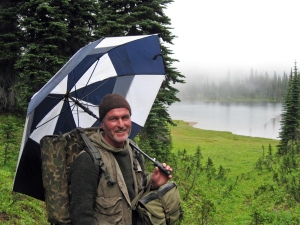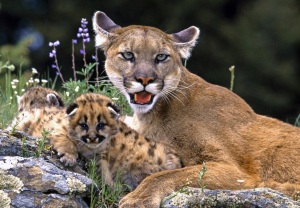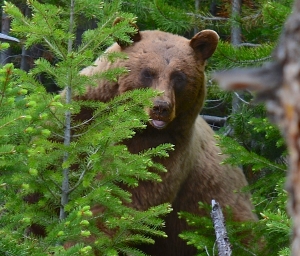 JLT Natural History Society and Western Wildlife Outreach joined on Thursday, October 16, 2014, for an entertaining evening of “Wolf Talk” with David Moskowitz, well-known wildlife tracker and author of Wolves in the Land of Salmon. Moskowitz will share stories, images, and video clips from the recent OR7 Expedition, which retraced the wanderings of a young male gray wolf, who traversed more than 1,200 miles through Oregon and into California.
JLT Natural History Society and Western Wildlife Outreach joined on Thursday, October 16, 2014, for an entertaining evening of “Wolf Talk” with David Moskowitz, well-known wildlife tracker and author of Wolves in the Land of Salmon. Moskowitz will share stories, images, and video clips from the recent OR7 Expedition, which retraced the wanderings of a young male gray wolf, who traversed more than 1,200 miles through Oregon and into California.
The wolf dubbed OR7 was captured and outfitted with a GPS collar in 2011 by the Oregon Department of Fish and Wildlife, to follow his journey via satellite signals across multiple mountain ranges, a vast desert, and past numerous towns and cities along the way. OR7 made international news as he wandered to California, becoming the first wolf to be documented there in 90 years. In the spring of 2014 Moskowitz, along with a filmmaker and other stalwart participants, launched an expedition to follow the approximate path of OR7 on foot and by bicycle. The adventurous mission led the team to fresh insights on what it means to share the landscape with large carnivores in the contemporary world.
David will be joined by local carnivore experts, Lorna and Darrell Smith, of the non-profit Western Wildlife Outreach (WWO), who will discuss Washington’s recovering gray wolf population. WWO is a Port Townsend based organization dedicated to providing accurate, science-based information on bears, wolves, and cougars. The organization aims to promote wildlife-safe communities, at the same time striving to restore and maintain healthy populations of these iconic animals, whose roots in the Pacific Northwest extend to millions of years ago.
David Moskowitz is a professional wildlife tracker, photographer, and outdoor educator. He has contributed his technical expertise to a wide variety of wildlife studies, employing tracking and other non-invasive methods to study wildlife ecology and promote conservation. Moscowitz helped establish the Cascade Citizen Wildlife Monitoring Project, whose participants search for and observe rare and sensitive wildlife in the Cascades and other Northwest wildlands.
The Natural History Society is an offshoot organization of the Jefferson Land Trust. It was founded in 2012 to foster active exploration, appreciation, understanding, and conservation of the diverse natural environments of the Olympic Peninsula and beyond.
The “Wolf Talk” program will take place at 7:00 pm, Thursday, October 16, at the Cotton Building, 607 Water Street, Port Townsend. This event is free and open to the public. A $5 donation will help defray the costs and support future programs.







